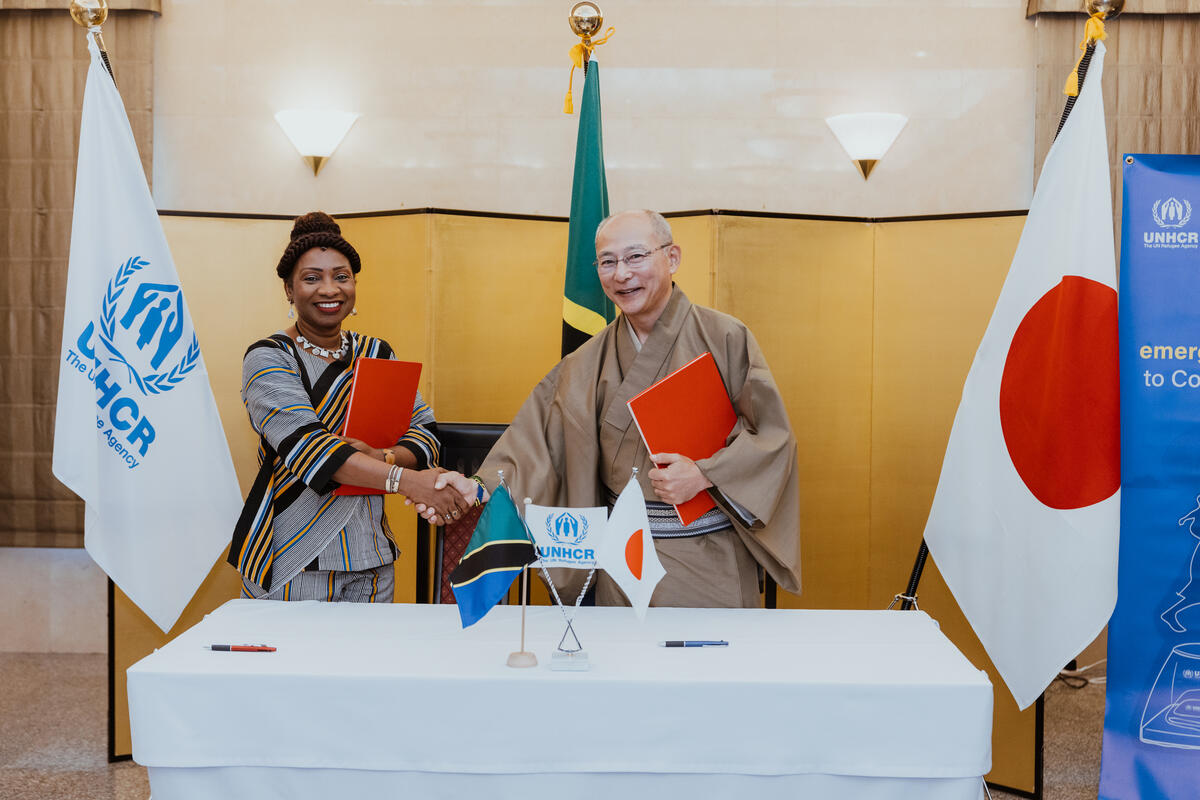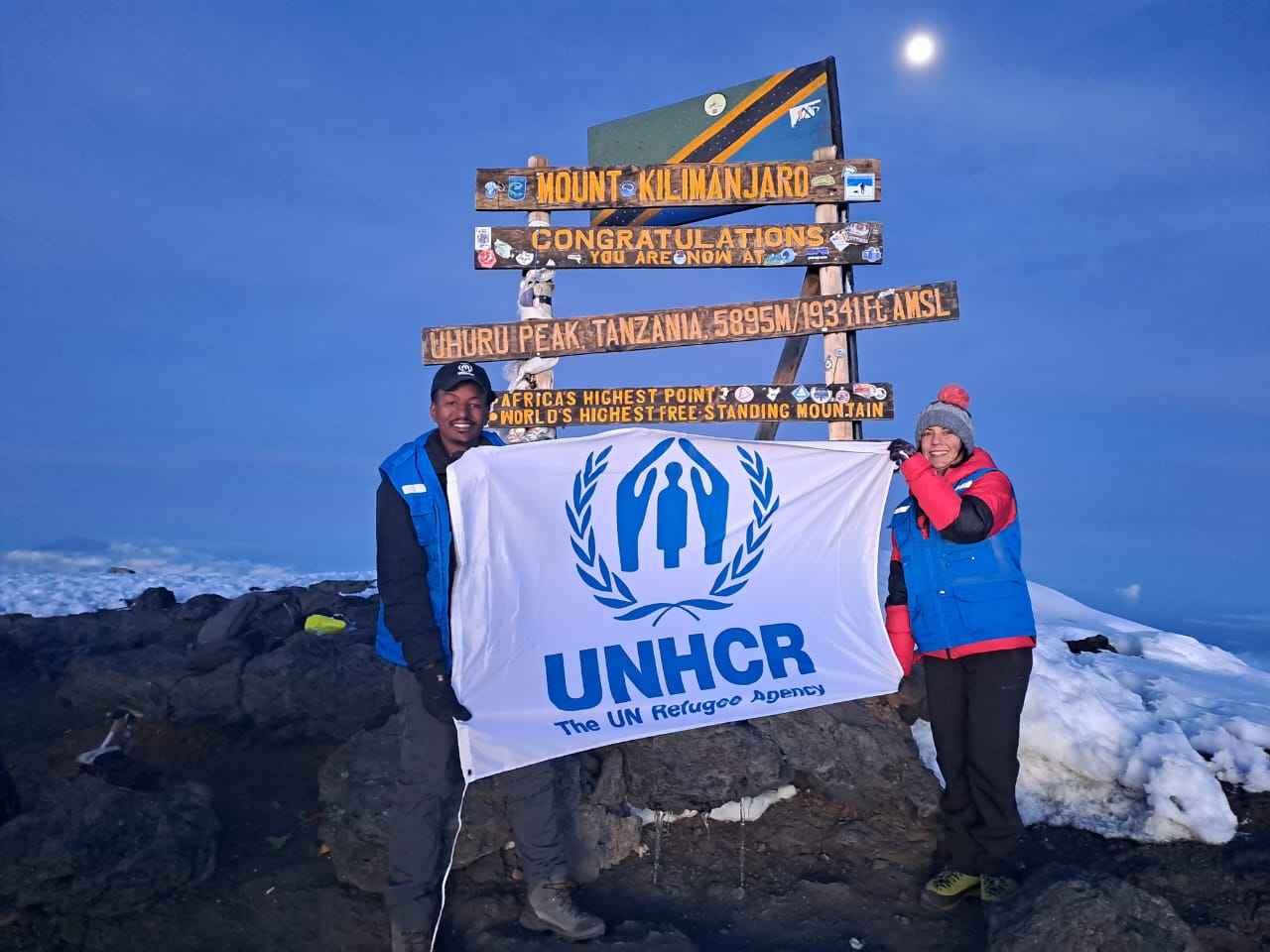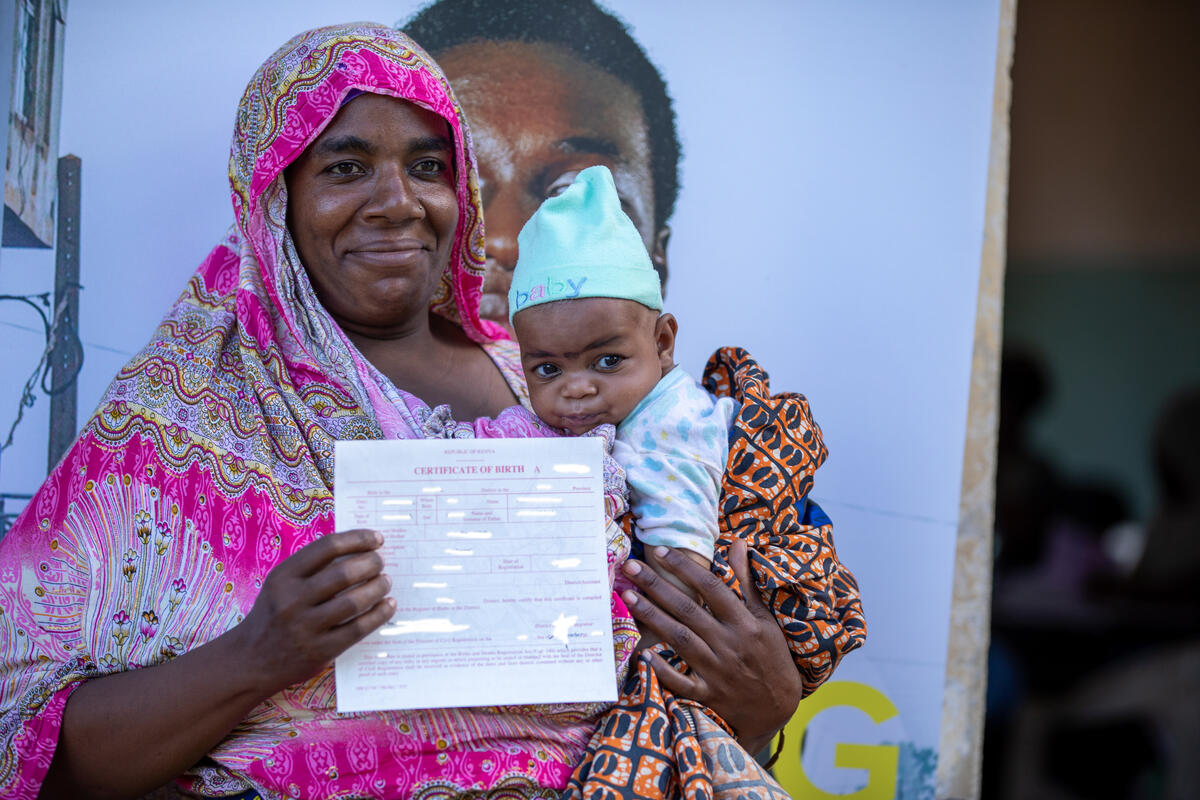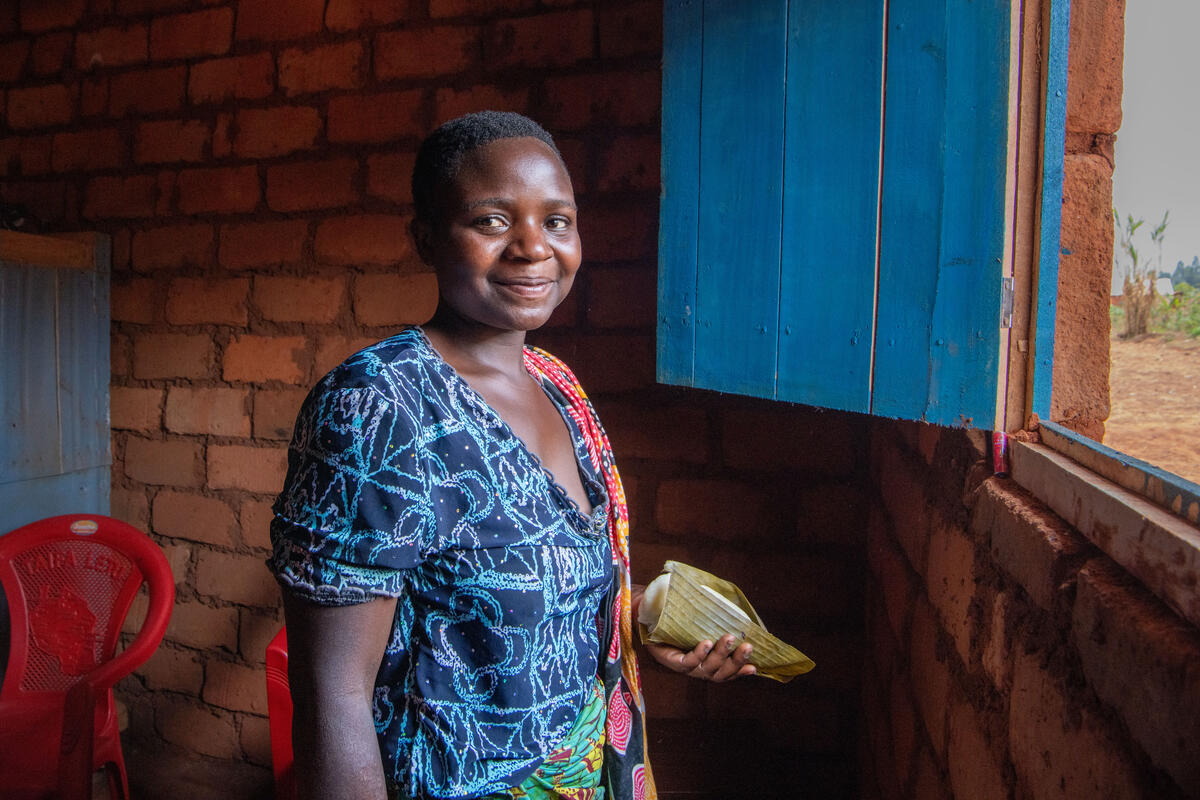Burundian mother struggles to give her disabled daughter a better life

Burundian mother struggles to give her disabled daughter a better life
NDUTA, Tanzania - Chaxelle rocks her daughter Gloria gently as she laughs happily and waves her small hands. The five-year-old gazes at her mother’s face adoringly; this is after all, the woman who does everything she can to shield her from a life that has already proven to be tough as nails for the Burundian family.
The 32-year-old widow and her daughters Gloria and Francine, 12, have lived in Tanzania’s Nduta camp in Kibondo District since 2015. Chaxelle would have had three daughter now but two years ago, when she was expecting twins, only one survived – Gloria.
She was born healthy but six months later, started to face unknown difficulties, including losing body mobility.
“We took her to the hospital in Burundi but the doctors said they were unable to help us because we lacked money,” she says. She was selling fabrics from Congo and her husband had just left the army. Shortly after, Burundi plunged into political turmoil and her husband was killed by unknown men. Forced to flee the country, she found safety in neighboring Tanzania with her two daughters.
“As a mother, it is hard when you cannot understand or have a conversation with your child because of speech delay.”
“Gloria cannot eat, sleep or walk properly and needs constant care,” she adds sadly. With limited personnel and medical supplies, the medical facility in Nduta camp can neither care for, nor cure Gloria, who is mentally and physically disabled. “As a mother, it is hard when you cannot understand or have a conversation with your child because of speech delay.”
She now struggles to take care of her and highly depends on Francine who is in primary school. “Francine is supposed to be in class five but as she spends most of her time taking care of Gloria, she had to repeat class four,” says Chaxelle.
UNHCR, the UN Refugee Agency, worked with HelpAge International, a humanitarian agency to assist Chaxelle with a sewing machine and a startup kit of US $30 to start a small shop.
“I am very grateful for the help I received and I now have an income,” she says. “But with Gloria’s disabilities, I cannot work as much on the sewing machine as I would like to and highly depend on the shop to provide for my daughters’ needs.”
Chaxelle has to use part of the small profit from the shop to put Gloria on a special diet twice a week. She buys a kilogram of millet flour, potatoes, rice and bananas to feed her as she is unable to eat the regular food provided by World Food Programme (WFP).
“I am worried that she may have other unknown complications because I see other disabled children who can eat anything, including the food provided by WFP,” she says.
Grace Atim, UNHCR’s Child Protection Officer in Kibondo works with children and has been following Gloria’s case very closely. She confirms that her case is difficult as there is no medical facility nearby that specializes in children with special needs.
“She needs specialized medical treatment that can help her regain her body mobility and address her eating and sleeping challenges,” says Atim.
Gloria is only one among over 48,000 people with special needs (PSNs) that UNHCR and aid agencies have identified across Tanzania’s three refugee camps. They comprise of the most vulnerable people and include unaccompanied and separated children, people with grave health conditions, the elderly, survivors of torture, people at risk (mainly without family support structures) and people with mental and physical disabilities.
UNHCR works with various agencies to identify and cater for PSNs when they arrive at border points, during registration processes in the camps, during routine service deliveries, when receiving health services, through home visits by volunteer case workers and at general food and non-food distributions. Other refugees and community leaders also assist with the monitoring process.
Through agencies like Help Age and the International Rescue Committee (IRC), UNHCR also provides psychosocial support, physical rehabilitation, training for Special Needs Education teachers and incentive workers, distribution of non-food items and rehabilitation of PSNs houses and livelihood activities.
“Every little effort that is put into supporting these children contributes significantly to their overall wellbeing and protection.”
UNHCR’s Representative in Tanzania, Ms. Chansa Kapaya agrees that a lot is being done in spite of the meager resources and interventions available. “More needs to be done as children like Gloria need specialized medical, mental and psychosocial care and support,” she says. “Although mental health and therapeutic solutions and health infrastructure are not well developed in the camps, every little effort that is put into supporting these children contributes significantly to their overall wellbeing and protection.”
Ms. Kapaya adds that such care is a core UNHCR protection responsibility as it enhances physical security and restores human dignity, rebuilds social structures, prevents protection risks and supports and promotes community support for vulnerable people at risk.
But this care is threatened by severe shortage of funds as it is barely enough to cover all the needs across the camps. The UNHCR Tanzania Operation is currently funded at only 29% with US $98.9 M needed to cover all the needs.
Some of the gaps in supporting PSNs include insufficient wheelchairs, teaching and learning accessories, few trained sign language teachers and community outreach workers, lack of rehabilitation clinics for persons with disabilities, education facilities and tools for those with speech and visual disabilities.
However, the available support from UNHCR has kept Chaxelle going. Just like her daughters who have a strong sisterly bond, she is strong in her fight for a better life for them.
“The lack of proper communication really affects my daughter’s ability to make friends but I will not rest until the day she can play, talk and help her sister,” says Chaxelle.











